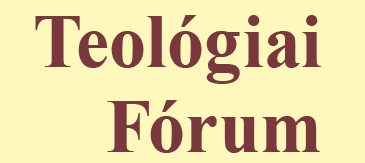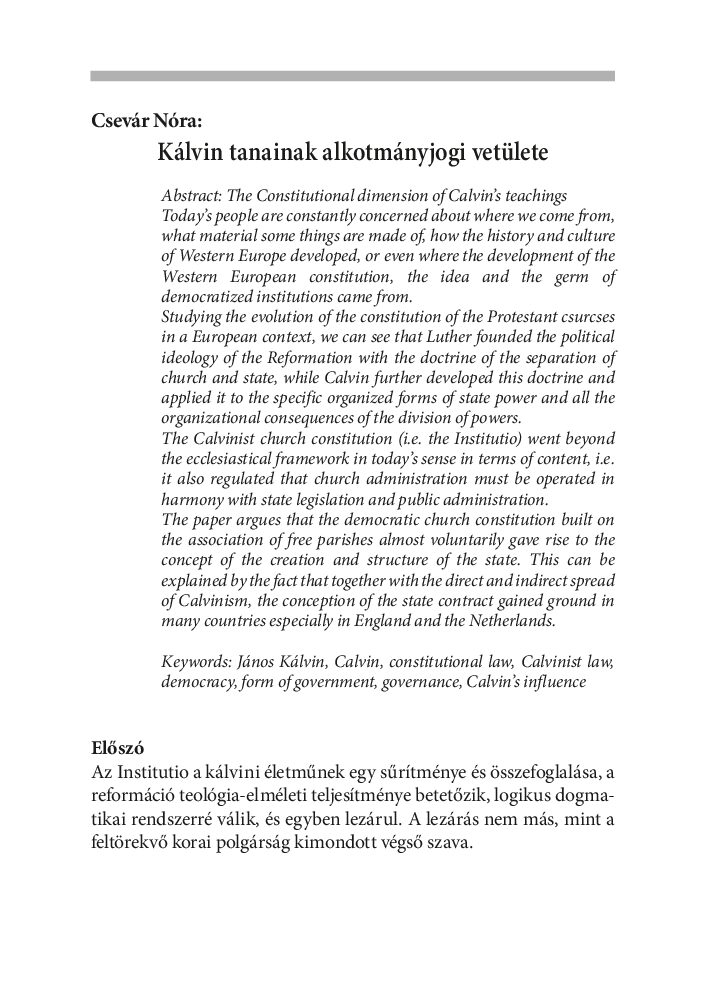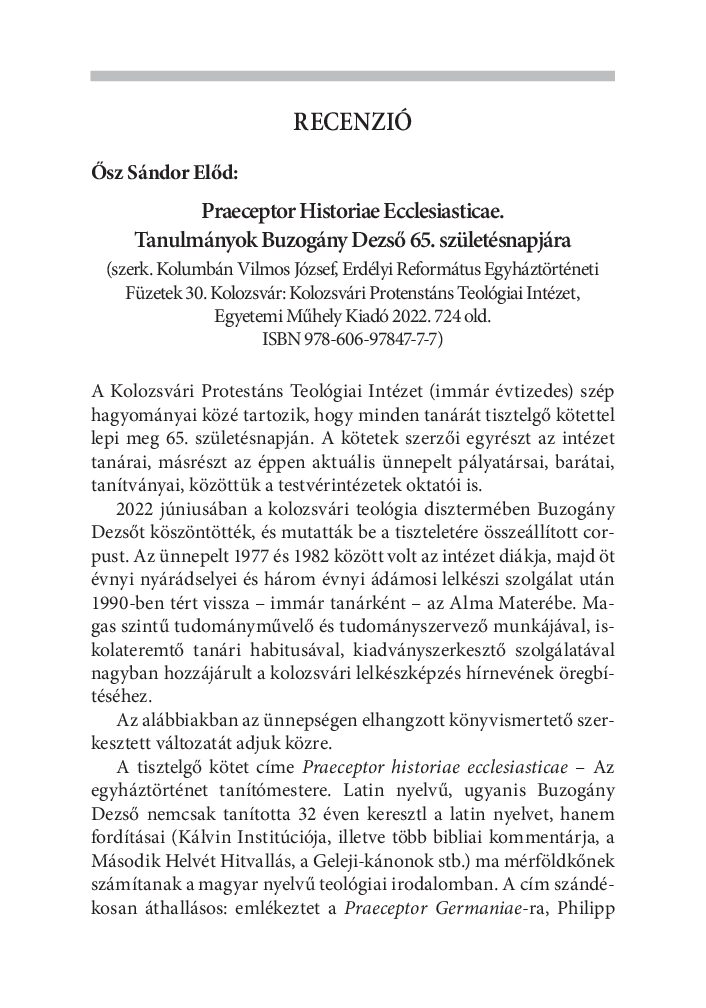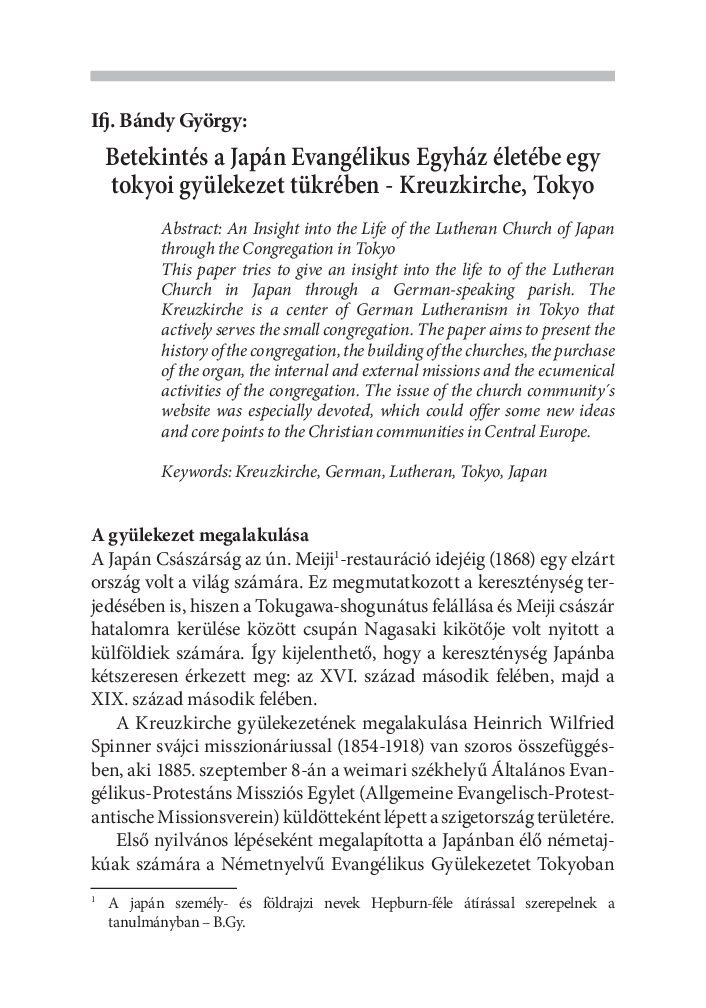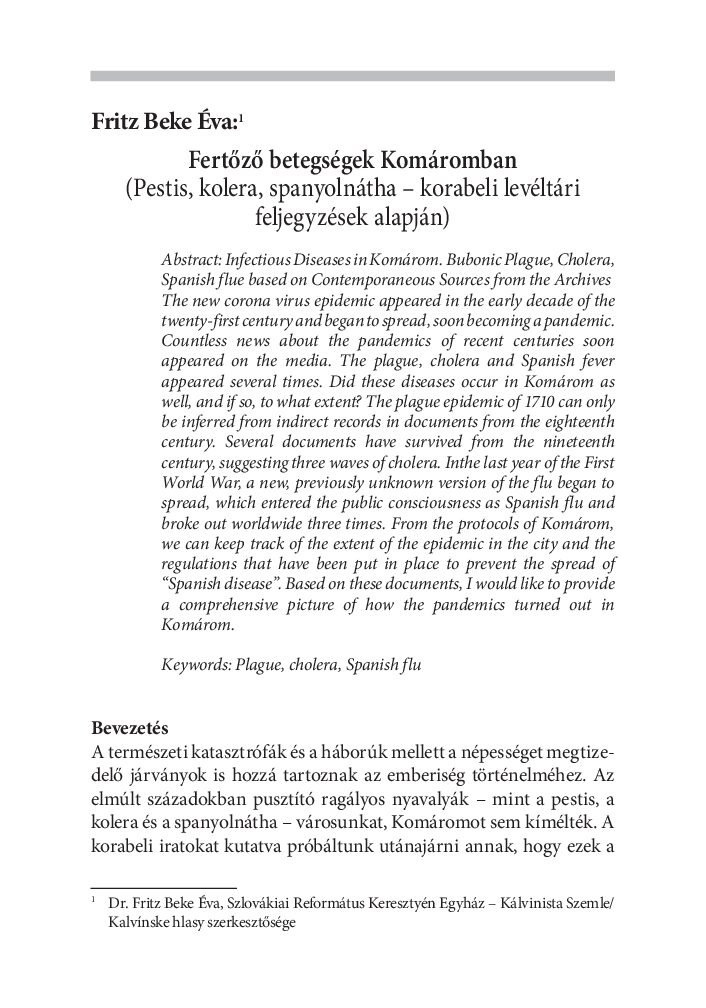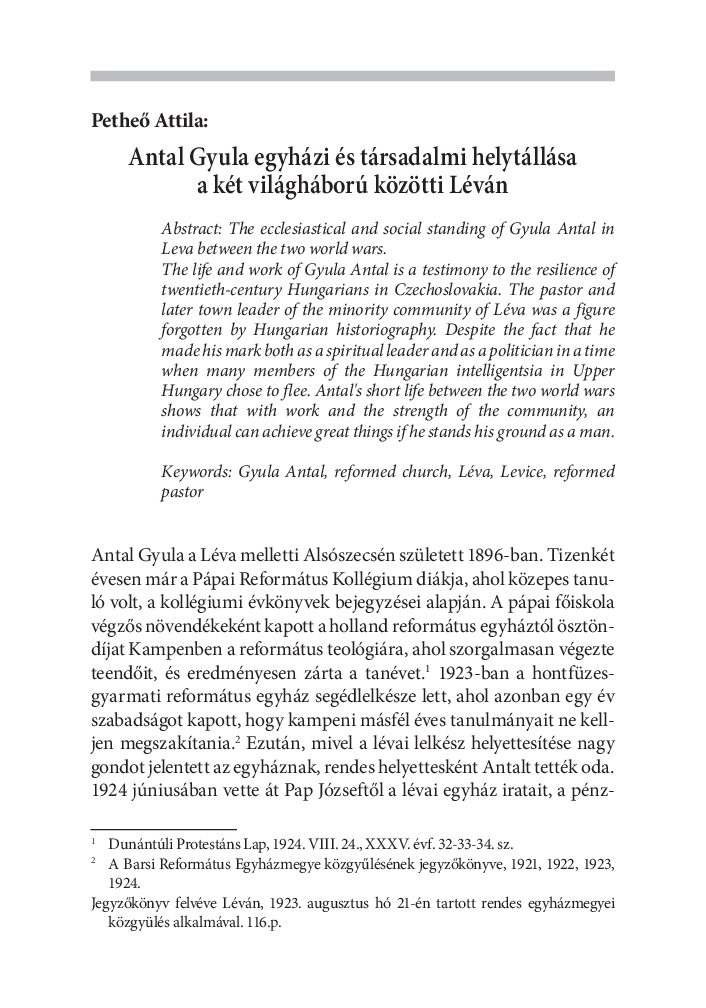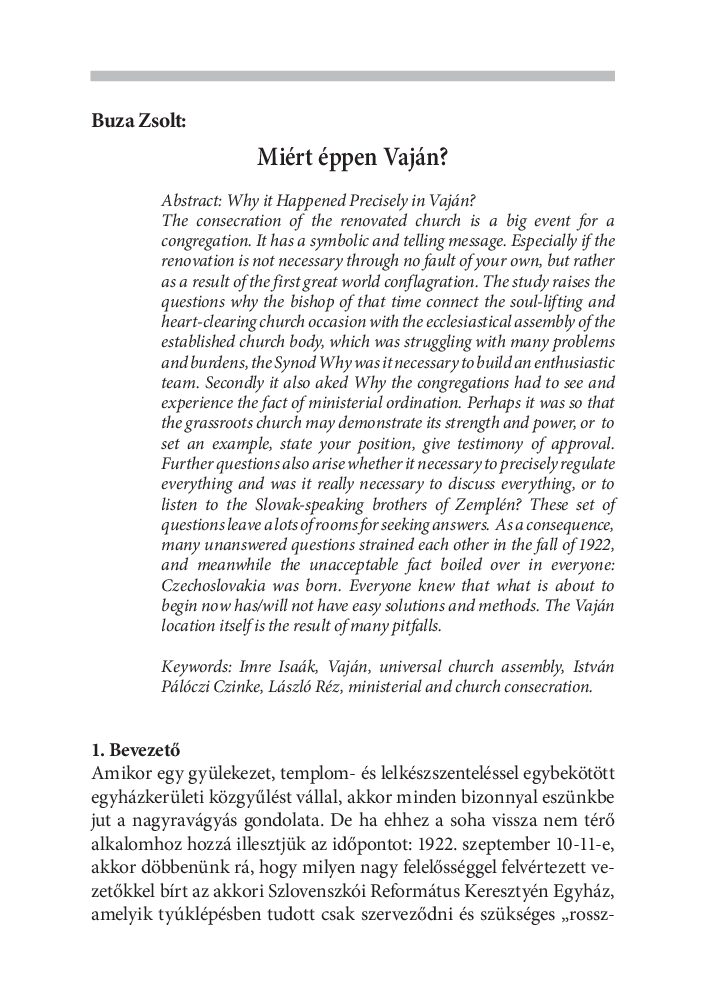Csík György: Krisztus-alapú diakónia.
Diaconia is still important and of great significance in our time. However, today’s diaconal ministry can be understood in different ways. It remains based on love of neighbour. The author asks critically about the diaconal ministry of our time, whether it is really a Christ-based ministry, and if not, whether it needs to be
corrected, reinterpreted, rebuilt on its old solid foundations, so that this ministry arising from love can keep its real, true form in the future. In the light of this, he will examine the anthropological, Christological, pneumatological, ecclesiological, eschatological and missiological significance of diaconal ministry. It examines the anthropology of the diaconate in the relationship between man and man (based on Genesis 1:27: God created and made man in his own image). The question arises whether in this relationship between man and man is the divine image manifested, moreover, is the healthy connection between body, spirit and soul preserved in their relationship? In diaconal Christology we discover the Christ who gives himself to man in the events of everyday life. We discover the greatest evidence of this in the Gospels, in the ministry of Jesus, especially in his healings. Diaconal pneumatology explores the power and work of the Holy Spirit in the human body. The body, which is in a certain form the temple of the Holy Spirit, is restored to the fullness of creation in the presence of Jesus Christ. It is a power that leads man to conversion, sanctification and healing. It is an important moment in diaconal ecclesiology to examine the way in which Jesus, in his earthly life, led man, through his own actions, towards the kingdom of God. It reveals to us that the church thus formed becomes a community of believers through the person who performs the diaconate and accepts the ministry. Thus the „visible” and the „invisible” church – through the doing of ministry – struggles with the world, while – „triumphing” over the secular. Diaconal eschatology is the story of the „last things”. The earthly existence is so burdened. Burdens, tensions and sins make us to wait for the experience of the second coming of Christ as soon as possible – they make the man to wait for „someone” who can help him to overcome all these earthly torments. But this is still to come. Man lives in doubt – whether he will go to hell or to the right hand of God. However, we know from the Bible (Revelation 21:3-4) that where God Himself is present, there is no more death or mourning, no more wailing or pain. So there is no need for „diakonia”, because God makes up for any deficiency. It is therefore obvious to us that the ministry of charity must remain an indispensable part of our life on earth.
Keywords: Church, diaconia, diaconal Christology, diaconal pneumatology, diaconal ecclesiology, diaconal eschatology
